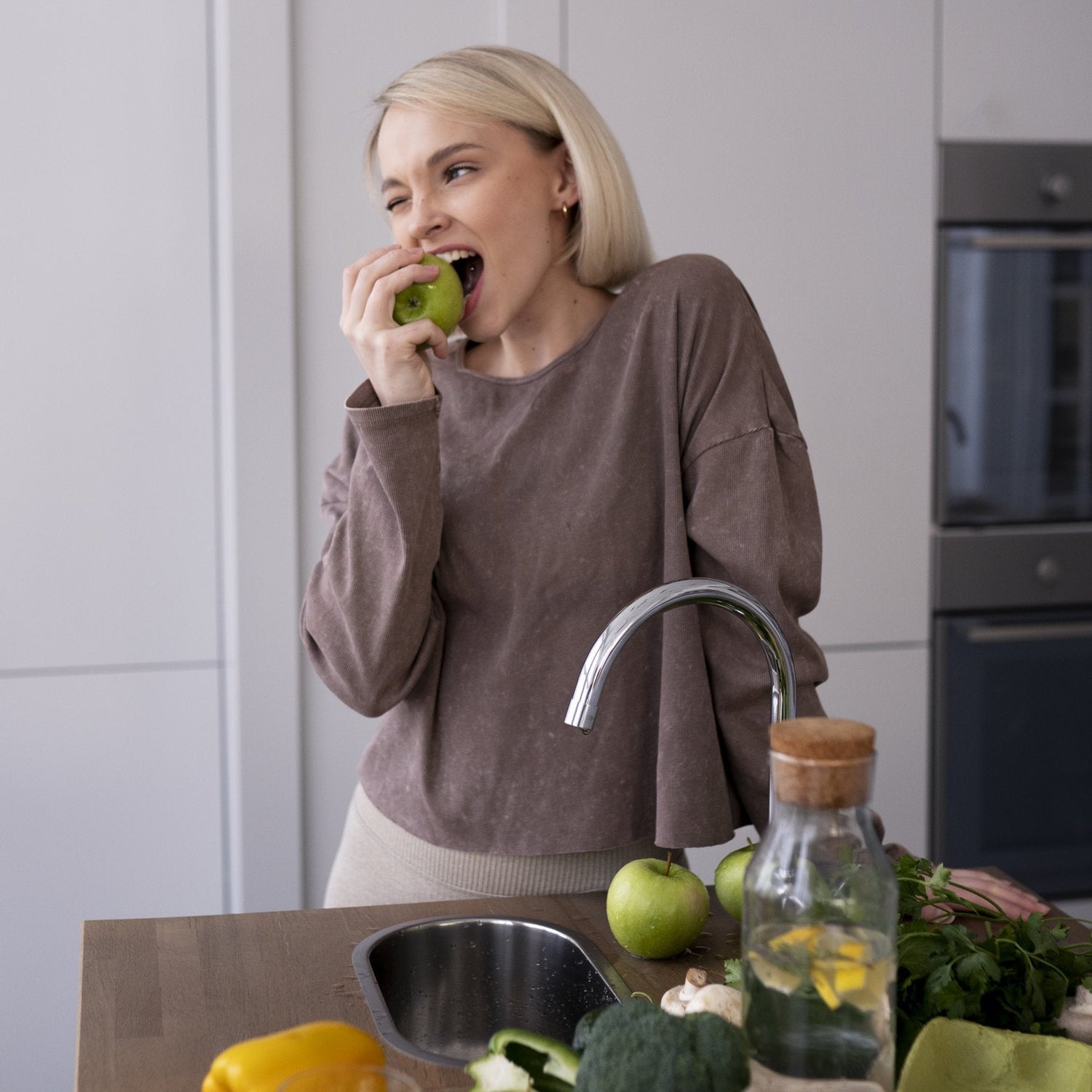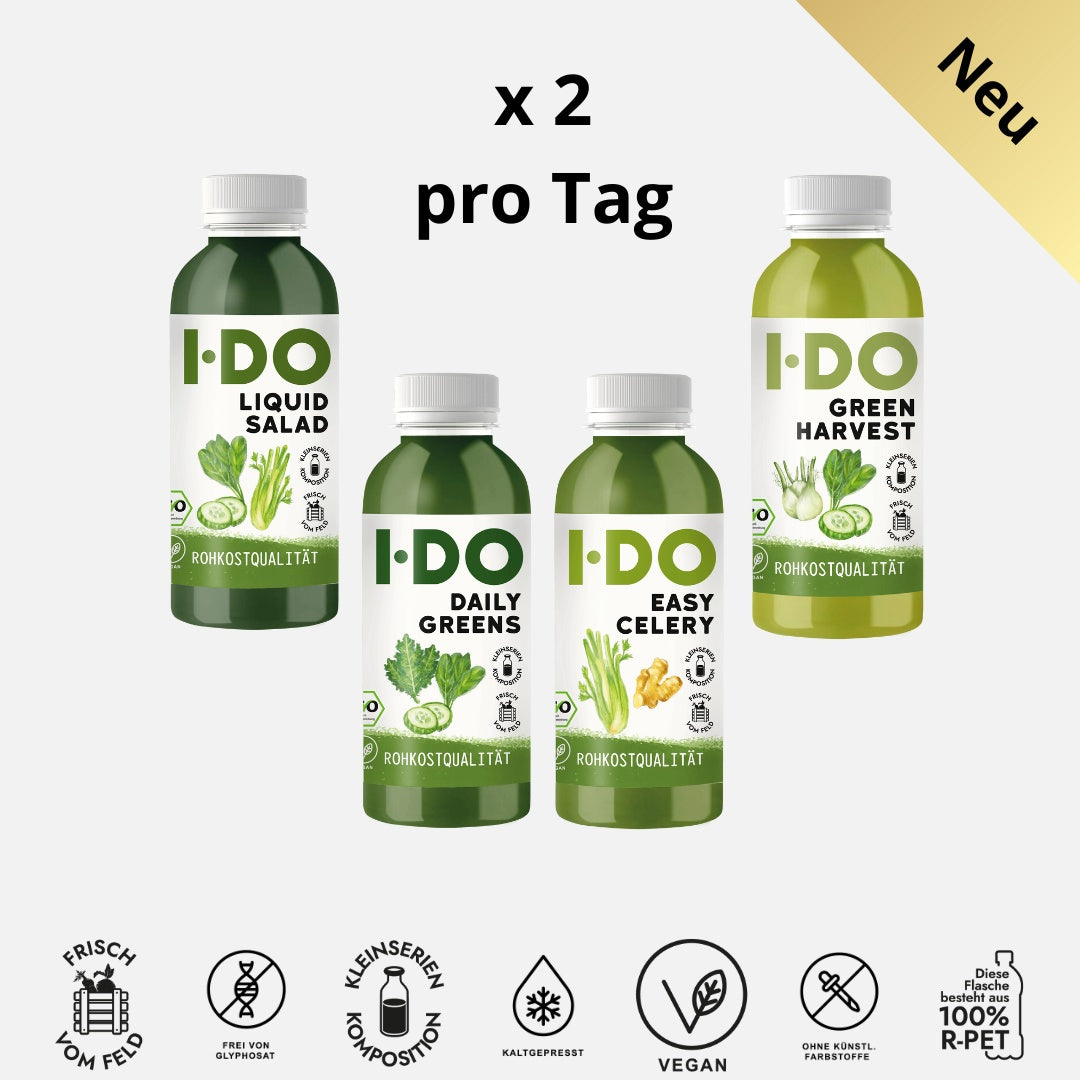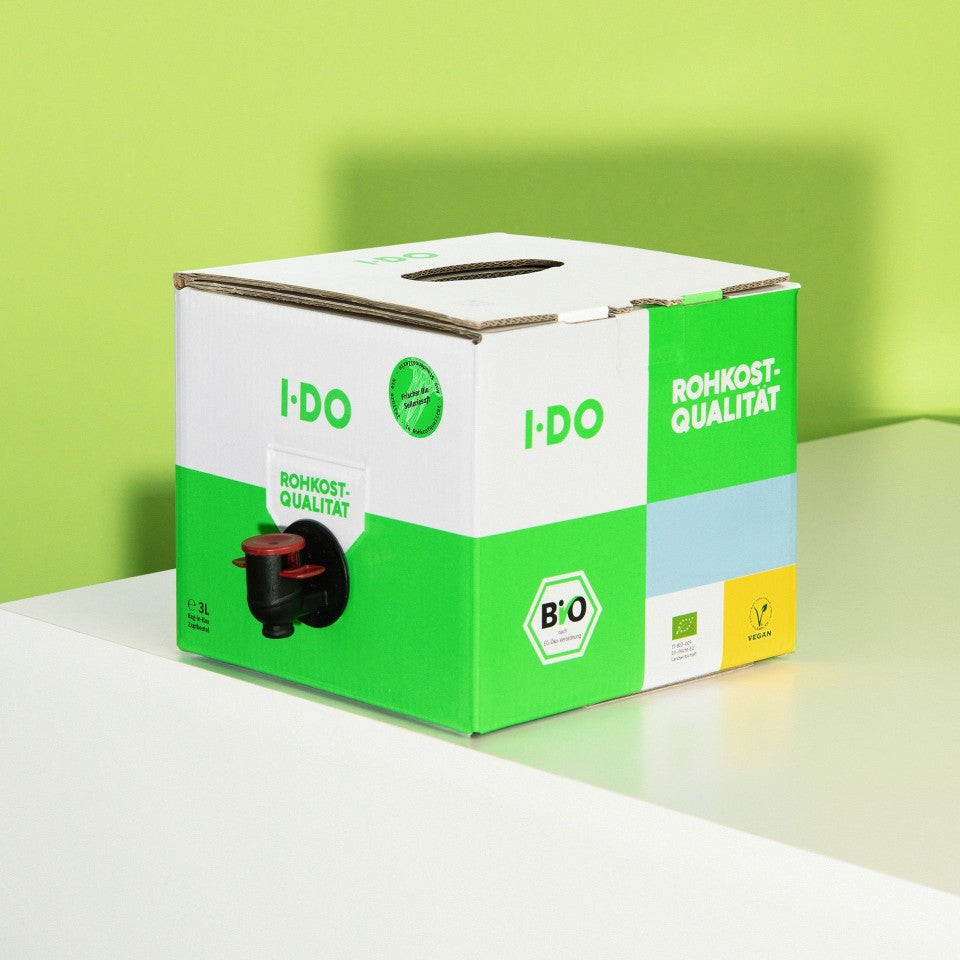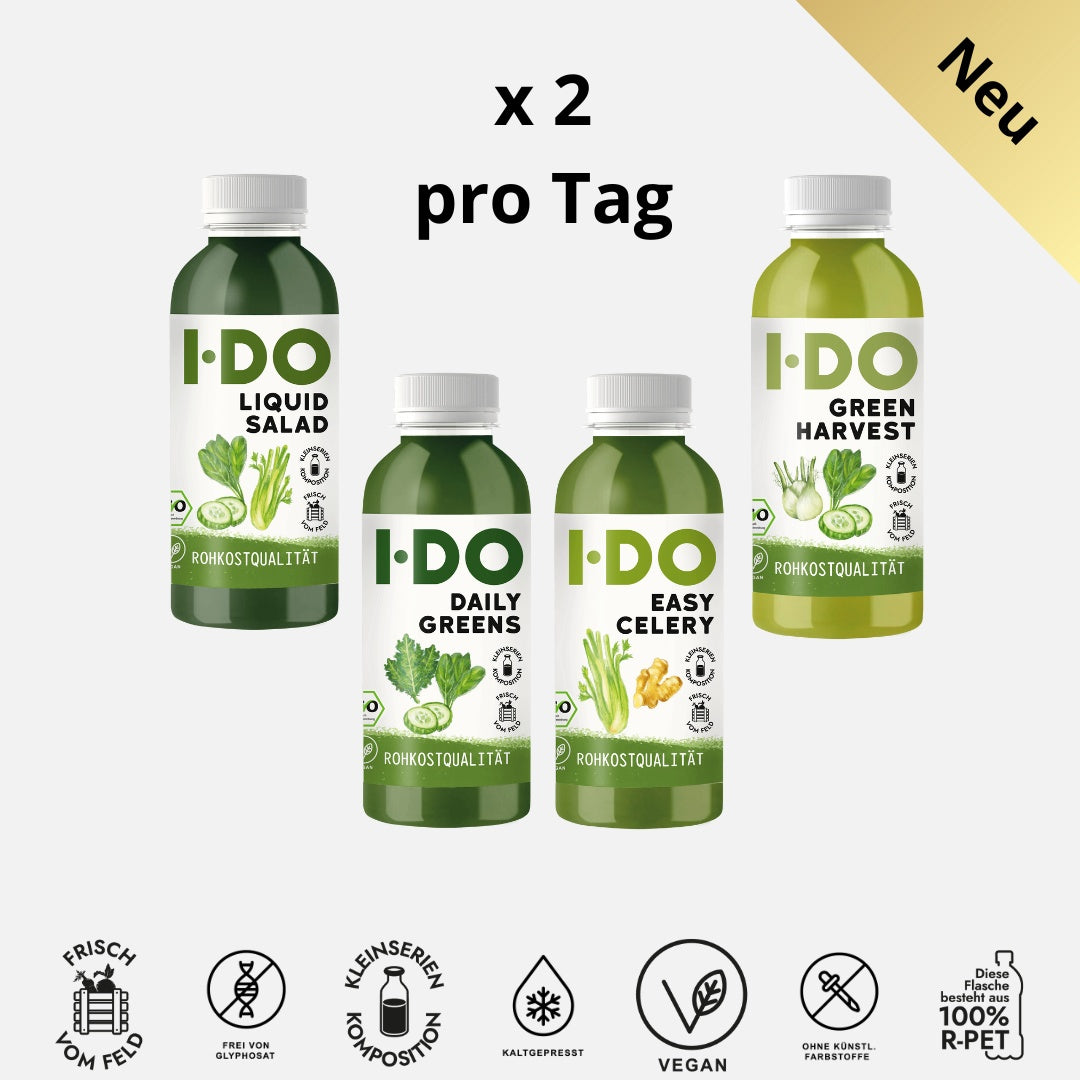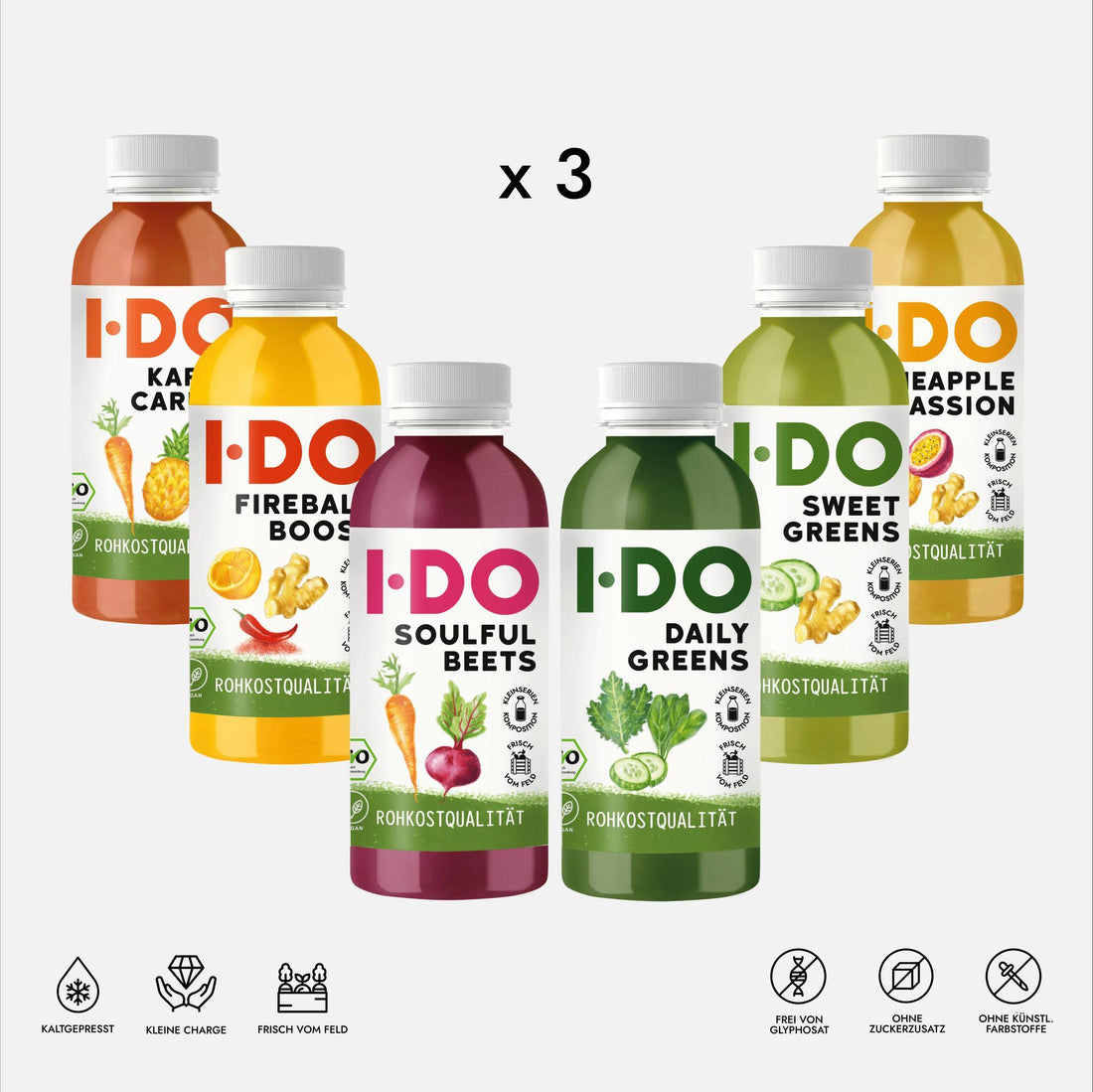An adult man's body mass is 60% water, while a woman's is 50%. However, even a loss of just 2% of total body water can reduce athletic performance. Conversely, this means that adequate hydration before, during, and after exercise is crucial for optimal performance. Experts recommend water as the primary source of fluids. Fresh juices can also be a valuable addition for athletes. We'll explore what you should consider regarding hydration and the benefits of juices.
Why is drinking so important during exercise?
Only the right combination of training, recovery, nutrition, and hydration is effective and leads to success. Whether you exercise for recreation and enjoyment or pursue ambitious competitive goals, maintaining a balanced fluid level is crucial. Water plays a vital role in regulating body temperature and preventing overheating through sweating. Fluid requirements depend on the type of physical activity, training level, external factors such as temperature and humidity. Suitable beverages like water and cold-pressed juice can help create optimal conditions from within and replenish lost fluids and nutrients after exercise.
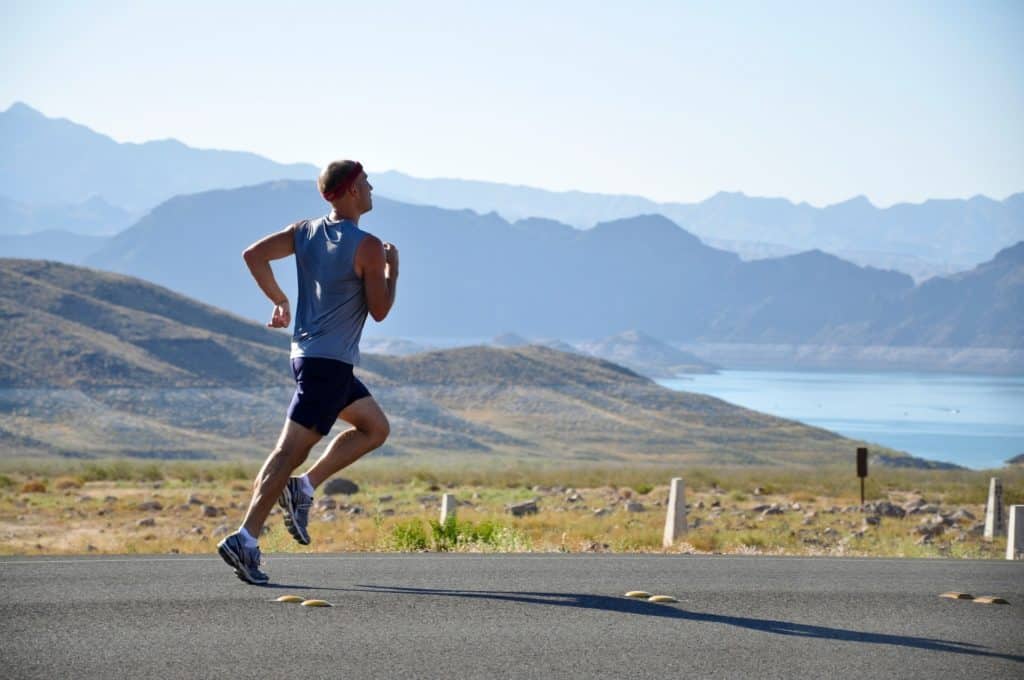
Drinking correctly: Before sports
To avoid periods of dehydration during exercise, the body's water reserves should be sufficiently replenished before starting. Experts recommend 5-7 ml of fluid per kilogram of body weight four hours before exertion and an increased fluid intake of 6-8 ml per kilogram of body weight two hours before the workout. Exceptions include very high exercise intensities, high temperatures, or very low humidity. Under these circumstances, drinking more fluids earlier and more frequently is necessary. For an extra energy boost, juice is a good alternative to water, as it provides quick energy without burdening the digestive system with heavy food.
Drinking correctly: During sports
The primary consideration here is the duration of the physical activity. For sessions of less than 60 minutes, hydration before and after training may suffice. If the workout lasts longer than 60 minutes, you should also drink during exercise. It is recommended to consume approximately 150ml of fluid every 20 minutes. For workouts lasting over 90 minutes, or shorter but significantly more intense endurance activities, 150ml to 250ml of fluid is advised at intervals of 10 to 20 minutes, depending on individual tolerance and the type of activity. The main goal here is to avoid an uncomfortable feeling of fullness. Generally, both mineral water and diluted fruit juice are ideal choices during exercise.
Drinking correctly: After sports
The time after exercise should be used for rapid regeneration. Proper post-workout nutrition improves recovery, allows you to be ready for your next workout faster, and enhances performance. Therefore, it's recommended to replenish approximately 1.5 liters of fluids for every kilogram of body weight lost. Now is the ideal time to absorb nutrients. Here's what happens: The brain signals to the body that all essential nutrients are urgently needed to repair any damage. Unlike solid food, liquids are particularly easy for the body to absorb because digestion requires minimal energy. This is precisely where juice comes into play.
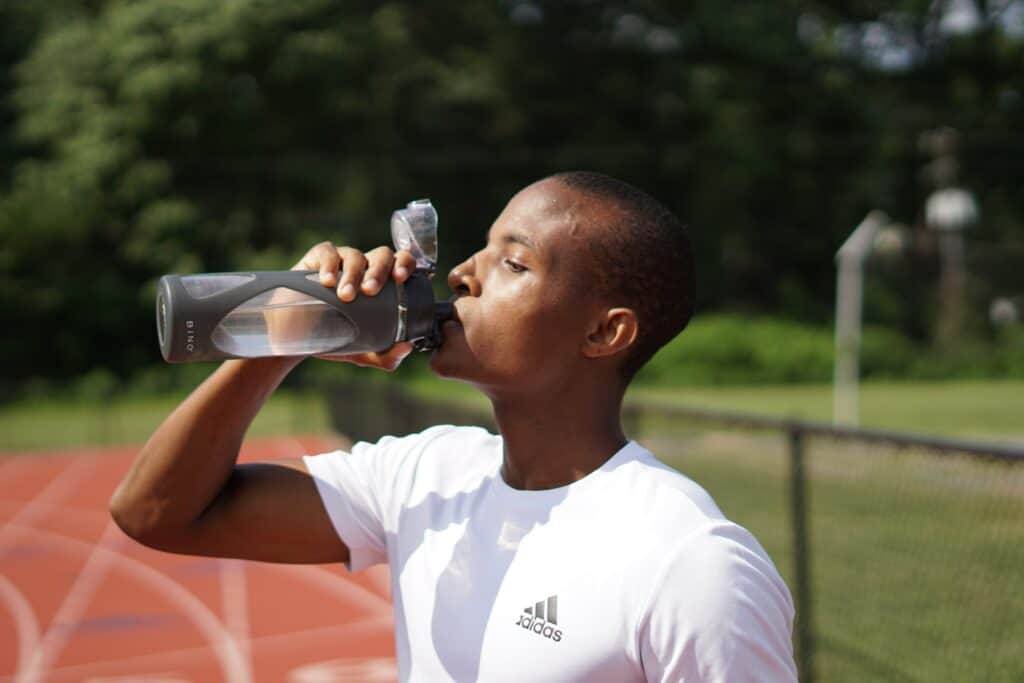
Fresh juices replenish depleted energy stores after exercise.
Fluid loss is accompanied by a loss of minerals and trace elements. Athletes can replenish these by consuming the right drink in the right amount and at the right time. Water is considered the essential drink for regulating metabolic processes in the body. Besides mineral water, juices are also excellent for providing the body with additional nutrients for direct absorption. We'll tell you which juices are particularly suitable below.
Raw food juices and their effects
Different juices can have varying effects on post-exercise recovery . Fresh apple juice, for example, has a high sodium content. The juice of this delicious local fruit can also help replenish fluids, which is especially important in hot summer weather. Orange juice, on the other hand, is known as a true vitamin powerhouse. A glass of orange juice can cover your daily vitamin C requirement. Its high vitamin C content can be particularly helpful in combating harmful free radicals. Pineapple juice, however, contains plenty of iron, which allows the body to transport oxygen to the muscles. It's important to choose raw, unpasteurized juice. Only cold-pressed juices, which have never been pasteurized (i.e., heated), retain their full range of valuable nutrients and vitamins. This crucial difference is essential when it comes to post-exercise recovery.
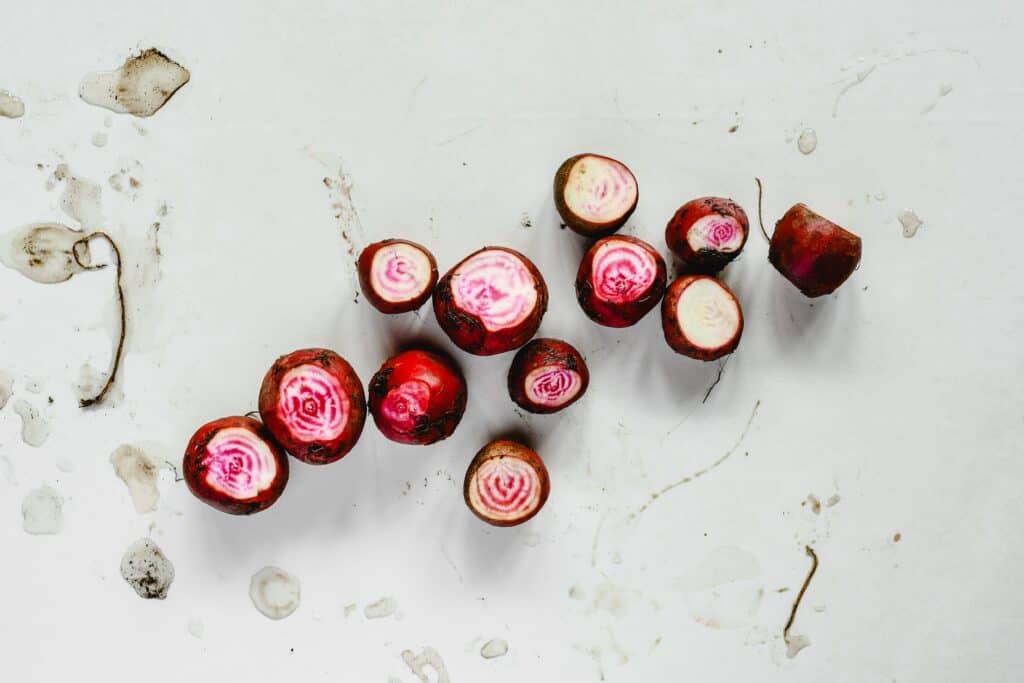
Beetroot juice: Power for all athletes
Beetroot is particularly popular among athletes because it contributes to normal muscle function. Studies have also confirmed the impressive effects of beetroot in sports. For example, studies in which athletes drank half a liter of beetroot juice daily yielded astonishing results. Improved endurance, significantly reduced energy expenditure, and 15-20% less oxygen consumption during maximum exertion were demonstrated. The superpower of beetroot can be attributed to its naturally high nitrate content. This dilates blood vessels, enriches the blood with oxygen, and improves circulation throughout the body. This explains the increased endurance and stamina during exercise. Beetroot can also have a positive effect on regeneration, as it allows muscles to recover more quickly after exertion.
Soulful Beets – The I•DO Power Juice that professionals swear by
Fresh, cold-pressed raw juices are ideal for athletes because they provide a quick and easy way to get plenty of natural vitamins and nutrients. Even professional athletes like Bundesliga footballer Corey Anton have recognized this. His favorite I•DO juice is clear: "Soulful Beets is my favorite because the combination of beetroot and carrot gives me a super fresh boost, and the vitamin boost hits me right away."




